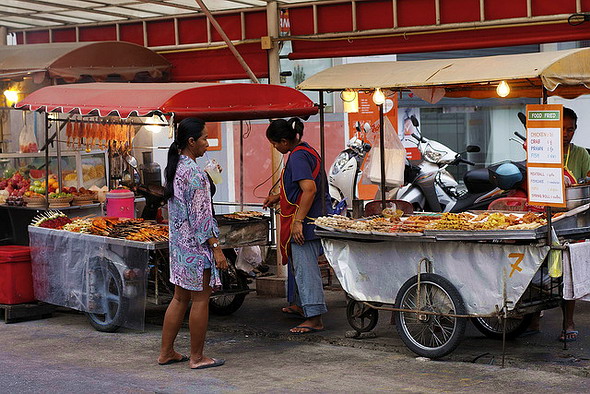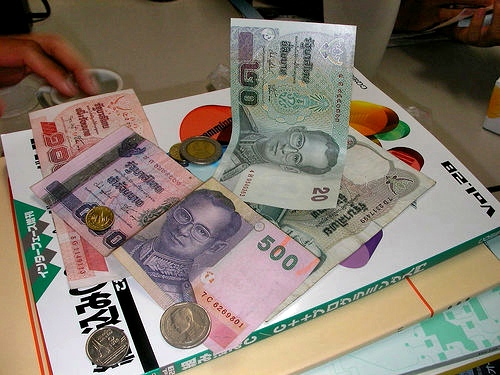
Thailand already has the worst performing economy in Asia. Its gross domestic product (GDP) is expected to contract by at least 8.1% this year due to its coronavirus lockdown, the country’s borders still being closed to international tourists and the Thai baht being too strong to make many Thai exports as affordable as in the past.
Now a new report from the Thai central bank shows Thailand’s household debt is 80% of the country’s GDP.
An enormous amount and one of the highest in the world.
With Thailand still closed to international tourists, who themselves amount for up to 21% of the country’s GDP every year, things look dire indeed for the Thai economy and for millions of the country’s citizens.

Thailand’s household debt is 80% of GDP
Although the central bank shows debt to be 80% of GDP in Thailand, in actual fact it is likely to be much higher.
This is due to many low-income Thais not being able to get loans from reputable banks and lending institutions.
This forces them to turn to illegal loan sharks, who will gladly lend them the money they need, but then charge exorbitant interest rates in return.
When Thais take out loans through these means, high interest rates are often calculated on a weekly or a daily basis. As these loans are illegal, they cannot be handled by the country’s legal system should payments be defaulted upon.
This can mean the illegal repossession of property and even land by loan sharks.
It can also result in violence developing in the equation as loan sharks threaten those who are unable to pay.
Meanwhile, the central bank estimates Thailand’s household debt could be as high as 90% of GDP by the end of the year due to the country’s rapidly contracting economy and to borders still being closed to international tourists.
In other words, things are likely to get worse for the Thai economy in 2020 and into 2021, not better.

What does this mean for Thailand’s economic outlook?
If you looked up the word ‘dire’ in the dictionary, most analysts would not be surprised to see a map of Thailand illustrating it.
With the worst performing economy in Asia, exceptionally high household debt and a Thai baht that is too strong to enable the country to increase its export income, when you throw in most international tourists are still banned from the country, Thailand’s economic outlook is poor indeed.
Investors are also not likely to return in the short term as the economic outlook for the country is gloomy.
In fact, should the country’s economy contract by 8.1% by the end of the year, that is a higher percentage than during the 1997-1998 Asian financial crisis, and could put the country on a footing for economic hardship.
If events unfold as they did in 1997-1998, when the Asian economic crisis began in Thailand, there is a chance it could lead to financial problems for many other countries in Asia and beyond.
Meanwhile, with the Thai government relying on domestic tourism to help its ailing tourism industry in a country where many are suffering financially, and implementing so-called ‘travel bubbles’ to help resurrect its tourism industry, millions more Thais could become unemployed as 2020 continues to wind down.



